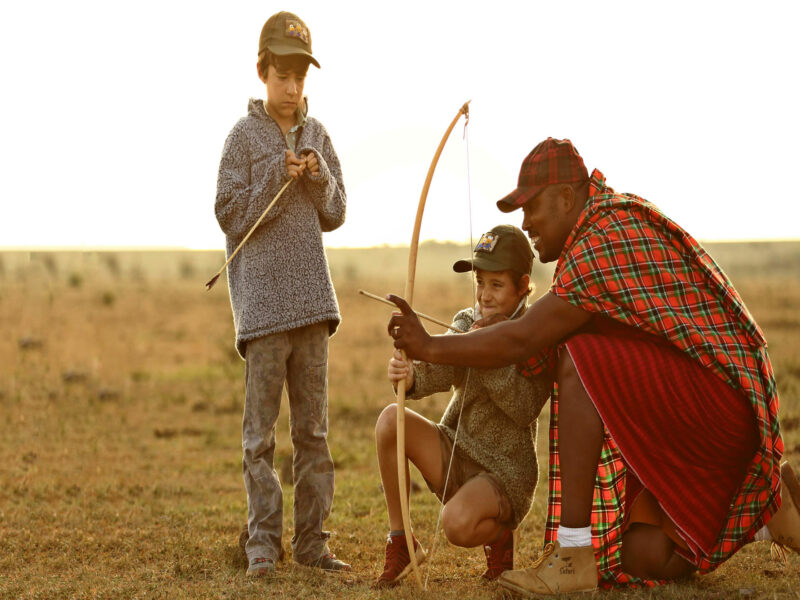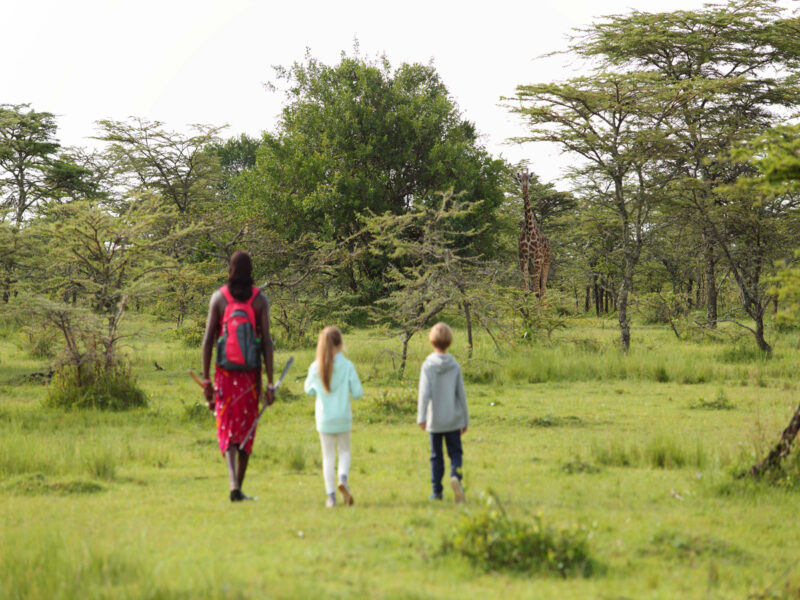Many young families have a safari on their bucket list, as the parents envisage safaris as a bonding experiences, and teaching their children about the natural world.
An African safari can be an incredible adventure for young ones, even a transformative experience. Given how special your children are to you, naturally you want the experience to be as joyful and seamless as possible. A bit of advance planning will ensure your African adventure is memorable and rewarding.
Here are some facts to consider
- Some camps have an age restriction whereby they only accept older children (for some it is 6 years and others it is 8 years), so be sure to check beforehand.
- Most camps and lodges charge full price for children over the age of 12 years. Child rates apply for children aged 2 to 12 years, but they have to be sharing a room with 2 adults for the rate to apply. So for a family of 4, with 2 children aged 11 and 13 years occupying their own room, this can make the safari expensive. Some properties, however, do have a family room which can accommodate 4 to 5 persons and this can work out more cost effective.

- Some activities like gorilla trekking and white water rafting have a minimum age requirement of 15 years, while activities like walking safaris with children under a certain age, are done at the discretion of the camp or lodge.
- A lot of camps and lodges now have dedicated children’s programmes and activities – these include Angama Mara, Kicheche Camps. Some of these activities include short bush walks, learning to identify the spoor of different animals, bow and arrow shooting, learning about indigenous plants and insects, and drawing animals. If your children are too young to appreciate game drives, you can leave your children to their activities while you go off on a game drive or walk.

- If your children are older and can accompany you on game drives, consider hiring a private vehicle. This way, your children will have the undivided attention of the guide, and you can also return to camp when they are tired, after an hour or two.
- Consider carrying the following with you, on game drives
- Disposable cameras or phone for taking pictures
- Binoculars for viewing animals
- An animal chart to tick off animals seen, and rewarding the ones with the most ticks
- Coloring animal books – they can match and color the animals as they see them.
- Some of the camps may be unfenced and open to animals, including predators, so you need to be vigilant and keep a close watch on your children all the time. If they are older, you can advise them of the restrictions, but for the younger ones, it can get exhausting.
- Many parks and reserves are in the malaria zone, so even children will have to take anti-malaria medications. If you don’t want your children to be taking these medications, choose a park that is in the malaria free zone.
- Look for a property with a pool, where children can expend their extra energy after sitting still in the vehicle on a game drive.
I feel that is it important to take children on safari, as it gives them a better understanding of the natural world around us, and why it is so important to conserve it.


Comment (0)